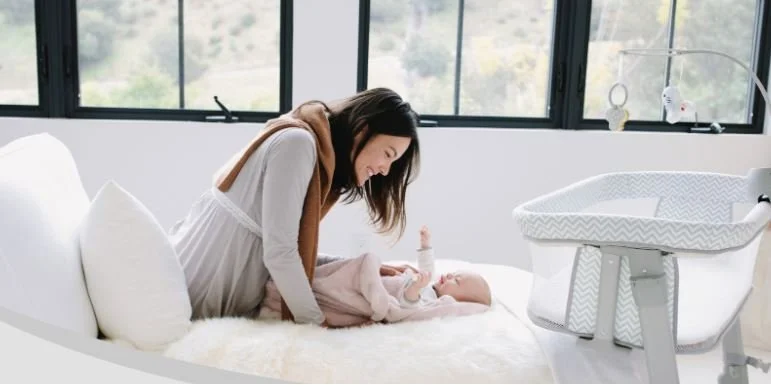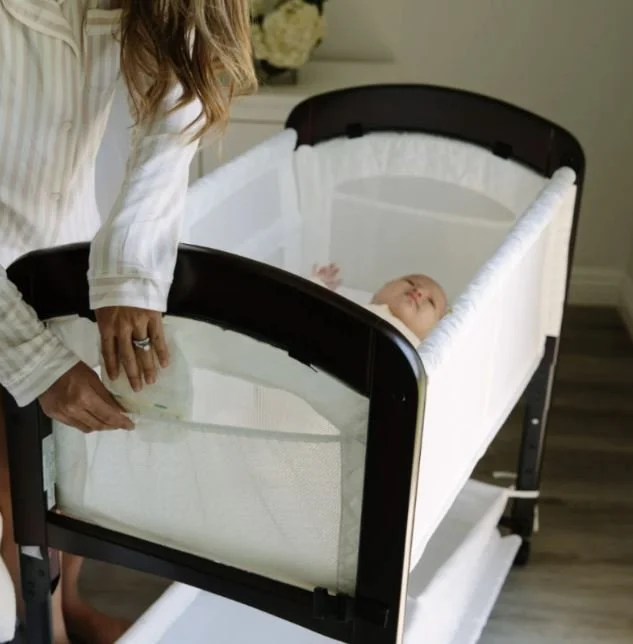Creating A Safe And Comfortable Sleep Space For A Newborn
Bringing a new baby home is one of life’s most exciting, and exhausting, experiences. Between late-night feedings and endless diaper changes, sleep can feel like a distant dream. But where a baby sleeps is one of the most important decisions new parents will make. While choosing nursery décor or the perfect swaddle might feel straightforward, deciding between a crib, bassinet, or co-sleeping setup often brings confusion and debate. Understanding the differences between safe and unsafe sleep practices can help ensure a baby rests soundly and safely from the start.
Understanding Co-Sleeping and Bedsharing
Parents naturally want to keep their newborn close. According to the American Academy of Pediatrics (AAP), the safest place for a baby to sleep is in the same room as their parents, but not in the same bed, for at least the first six months. This arrangement, known as co-sleeping, means the baby sleeps in their own bassinet or crib beside a bed. It helps reduce risks while making nighttime care easier.
Bedsharing, by contrast, refers to sleeping in the same bed with a baby, or even on a couch or recliner. While it may seem comforting, experts warn that bedsharing is not safe. Soft bedding, pillows, or an adult accidentally rolling over can create serious hazards. Once a baby can sit up or push up on their hands and knees, it’s time to transition them from a bassinet to a crib for continued safety.
Why Bedsharing Can Be Dangerous
Adult beds simply aren’t built for infant safety. The Centers for Disease Control and Prevention (CDC) reports that in 2019, 28% of sudden unexpected infant deaths (SUID) were caused by accidental suffocation and strangulation in bed. Babies can become trapped between a mattress and wall, covered by soft blankets, or smothered by pillows. These are all risks that don’t exist in a properly designed bassinet. A safe bassinet provides firm support, breathable sides, and a space free of clutter, giving babies their own protected sleep surface and giving parents peace of mind.
Reducing the Risk of SIDS
Every new parent learns about the importance of placing babies on their backs to sleep to help prevent Sudden Infant Death Syndrome (SIDS). But location matters, too. The AAP recommends that infants sleep in their parents’ room for at least six months, ideally up to one year. Research shows that room sharing, not bedsharing, can reduce the risk of SIDS by as much as 50%. Having a baby nearby helps parents respond more quickly to feeding or distress cues, which promotes safer, more restful sleep for everyone.
Making Night Feedings Easier
Newborns need to eat frequently, often every two to three hours. Having a baby safely within reach in a bassinet makes those middle-of-the-night wakeups less disruptive. For breastfeeding parents, it eliminates the need to walk across the room or down the hall, and it encourages consistent feeding patterns. Room sharing supports bonding and makes it easier to settle a baby back to sleep, which can lead to more rest for parents as well.
The Right Bassinet Makes It Easier
One company that truly revolutionized infant sleep is the Arm's Reach Co-Sleeper® that provided parents with an entirely new way to sleep near their baby. The company was conceived by a new mom and dad who wanted to create a safe sleep space for their baby. They wanted a space separate from the parents’ bed and within arm’s reach to increase bonding, to facilitate feeding and to calm a fussy baby with a gentle touch all without having to get out of bed and go into another room.
Safety and Comfort Go Hand in Hand
A bassinet offers the best combination of safety, closeness, and convenience. Parents can easily check on their baby, feed, or comfort them, while the infant remains in a secure and separate sleep space. It’s a setup that honors both a baby’s natural need for connection and a parent’s need for reassurance.
Choosing the right sleep environment is a matter of safety and peace of mind. With the right bassinet, a baby can sleep soundly within reach, and new parents can rest a little easier knowing they’re safe.


